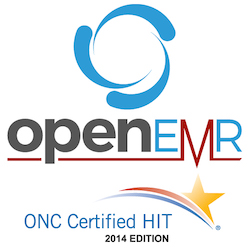Application Programming Interfaces (APIs)
See the following -
ONC Head Dr. Donald Rucker Addresses open API's, Interoperability and Usability During WEDI Keynote
 Earlier this month, the Workgroup for Electronic Data Interchange (WEDI), the nation’s leading nonprofit authority on the use of health IT to create efficiencies in healthcare information exchange and a trusted advisor to the U.S. Department of Health and Human Services (HHS), held its 2017 Summer Forum which featured keynote addresses by Donald W. Rucker, MD, head of the Office of the National Coordinator for Health Information Technology (ONC/HHS) and Madhu Annadata, director, Division of National Standards, Centers for Medicare & Medicaid Services (CMS)...
Earlier this month, the Workgroup for Electronic Data Interchange (WEDI), the nation’s leading nonprofit authority on the use of health IT to create efficiencies in healthcare information exchange and a trusted advisor to the U.S. Department of Health and Human Services (HHS), held its 2017 Summer Forum which featured keynote addresses by Donald W. Rucker, MD, head of the Office of the National Coordinator for Health Information Technology (ONC/HHS) and Madhu Annadata, director, Division of National Standards, Centers for Medicare & Medicaid Services (CMS)...
- Login to post comments
ONC Playbook Breaks Down Health IT, EHR Tasks and Buzzwords
 The healthcare industry seems to be largely driven by buzzwords: quick and snappy phrases that reduce complex, difficult, expensive and often confusing initiatives into keywords that may not mean much to the uninitiated. From big data and population health management to electronic health records and value-based care, these short and sweet terms have come to define the new direction of one of the nation’s largest sectors...
The healthcare industry seems to be largely driven by buzzwords: quick and snappy phrases that reduce complex, difficult, expensive and often confusing initiatives into keywords that may not mean much to the uninitiated. From big data and population health management to electronic health records and value-based care, these short and sweet terms have come to define the new direction of one of the nation’s largest sectors...
- Login to post comments
ONC Releases 2018 HITECH Report
 In early January the Office of the National Coordinator for Health Information Technology (ONC) issued its annual report to Congress for 2018 on the adoption of electronic health records (EHR) and interoperability. This report is required under the HITECH Act and is further informed by requirements of the later 21st Century Cures Act...One thing that I think is notable was a short discussion about barriers to interoperability that we have heard before. The report identifies three types: technical barriers, financial barriers, and trust barriers. Within trust barriers the report mentions legal incentives to keep data from moving (I guess that would have better been phrased as legal disincentives to sharing), but this misses the point: It is the patchwork of inconsistent and incompatible State and local laws and regulations - not intentional information blocking - that presents a bigger challenge and barrier.
In early January the Office of the National Coordinator for Health Information Technology (ONC) issued its annual report to Congress for 2018 on the adoption of electronic health records (EHR) and interoperability. This report is required under the HITECH Act and is further informed by requirements of the later 21st Century Cures Act...One thing that I think is notable was a short discussion about barriers to interoperability that we have heard before. The report identifies three types: technical barriers, financial barriers, and trust barriers. Within trust barriers the report mentions legal incentives to keep data from moving (I guess that would have better been phrased as legal disincentives to sharing), but this misses the point: It is the patchwork of inconsistent and incompatible State and local laws and regulations - not intentional information blocking - that presents a bigger challenge and barrier.
- Login to post comments
ONC Releases New NPRM on Interoperability: How Might it Affect Public Health?
 On February 11, 2019, the Office of the National Coordinator for Health Information Technology (ONC) released its latest Notice of Proposed Rulemaking (NPRM) to Improve the Interoperability of Health Information. Referred to by some people as the "Information Blocking NPRM," since this was the primary topic anticipated, the document actually covers a host of other topics related to interoperability driven primarily by requirements of the 21st Century Cures Act. Besides the initial text of the NPRM, ONC also released a set of summary slides and fact sheets to help explain the document.
On February 11, 2019, the Office of the National Coordinator for Health Information Technology (ONC) released its latest Notice of Proposed Rulemaking (NPRM) to Improve the Interoperability of Health Information. Referred to by some people as the "Information Blocking NPRM," since this was the primary topic anticipated, the document actually covers a host of other topics related to interoperability driven primarily by requirements of the 21st Century Cures Act. Besides the initial text of the NPRM, ONC also released a set of summary slides and fact sheets to help explain the document.
- Login to post comments
ONC Tech Forum 2020—An Attendee's Perspective
 I attended the ONC summer Tech Forum in August 2020 which brought together over 1,500 industry experts and Federal partners to discuss technical innovations in health information technology and their potential impacts on the healthcare ecosystem...One of the most interesting parts of the conversation was focused on the efforts made by Honk Kong to develop an open source digital health platform. Over the past 20+ years, Hong Kong has been pursuing a "one system, one record" policy primarily built on open source components. Though they had little money to invest at the beginning, for them open source is more about retaining control than about controlling cost (though the lower price tag certainly got them started down this path)...
I attended the ONC summer Tech Forum in August 2020 which brought together over 1,500 industry experts and Federal partners to discuss technical innovations in health information technology and their potential impacts on the healthcare ecosystem...One of the most interesting parts of the conversation was focused on the efforts made by Honk Kong to develop an open source digital health platform. Over the past 20+ years, Hong Kong has been pursuing a "one system, one record" policy primarily built on open source components. Though they had little money to invest at the beginning, for them open source is more about retaining control than about controlling cost (though the lower price tag certainly got them started down this path)...
- Login to post comments
ONC Wants Help Exploring FHIR-based Servers and Their Vulnerabilities
The Office of the National Coordinator for Health IT is capitalizing on National Cybersecurity Awareness Month to explore how to build secure, interoperable servers for sharing electronic health information, and it wants some help from the public. ONC officials have launched the Secure API Server Showdown Challenge to industry stakeholders to build Fast Healthcare Interoperability Resources, or FHIR, servers that are deemed secure under current industry standards and then see if they can be hacked...
- Login to post comments
Open Chemistry Project Raises Up the Next Generation of Researchers
 In 2007 I took part in Google Summer of Code (GSoC) developing the Avogadro application. As we were developing Avogadro, we founded The Open Chemistry project as an umbrella project to develop related tools for chemistry and materials science. Our goal is to bring high quality open source tools to research communities working in these areas, and to develop other tools to complement the Avogadro molecular editor. This year we were very pleased to be selected as a mentoring organization for GSoC; a few of our mentors are Geoff Hutchison, Adam Tenderholt, David Koes, and Karol Langner, who are all long-time contributors in related projects. And, we were lucky to get three slots for student projects...
In 2007 I took part in Google Summer of Code (GSoC) developing the Avogadro application. As we were developing Avogadro, we founded The Open Chemistry project as an umbrella project to develop related tools for chemistry and materials science. Our goal is to bring high quality open source tools to research communities working in these areas, and to develop other tools to complement the Avogadro molecular editor. This year we were very pleased to be selected as a mentoring organization for GSoC; a few of our mentors are Geoff Hutchison, Adam Tenderholt, David Koes, and Karol Langner, who are all long-time contributors in related projects. And, we were lucky to get three slots for student projects...
- Login to post comments
Open Chemistry Project Upholds Mission of Unorganization, The Blue Obelisk
 Chemistry is not the most open field of scientific endeavor; in fact, as I began working more in the area (coming from a background in physics), I was surprised with the norms in the field. As a PhD student way back in 2003, I simply wanted to draw a 3D molecular structure on my operating system of choice (Linux), and be able to save an image for a paper/poster discussing my research. This proved to be nearly impossible, and in 2005 a group of like-minded researchers got together at a meeting of the American Chemical Society and formed an unorganization: The Blue Obelisk (named after their meeting place in San Diego)...
Chemistry is not the most open field of scientific endeavor; in fact, as I began working more in the area (coming from a background in physics), I was surprised with the norms in the field. As a PhD student way back in 2003, I simply wanted to draw a 3D molecular structure on my operating system of choice (Linux), and be able to save an image for a paper/poster discussing my research. This proved to be nearly impossible, and in 2005 a group of like-minded researchers got together at a meeting of the American Chemical Society and formed an unorganization: The Blue Obelisk (named after their meeting place in San Diego)...
- Login to post comments
Open Data Portals Should Be API [First]
 Not long ago, I was speaking at the National Association of Government Web Professionals. At the same conference, Mark Headd was speaking. We were speaking on different open data topics. My discussion was about the difference between open government and open data and his talk was about API [First]. Luckily they had us scheduled at different times, so I had the opportunity to see him speak on the API [First] strategy for website development using open data. His subtitle was "Open Data as a Foundation for Better Websites"...
Not long ago, I was speaking at the National Association of Government Web Professionals. At the same conference, Mark Headd was speaking. We were speaking on different open data topics. My discussion was about the difference between open government and open data and his talk was about API [First]. Luckily they had us scheduled at different times, so I had the opportunity to see him speak on the API [First] strategy for website development using open data. His subtitle was "Open Data as a Foundation for Better Websites"...
- Login to post comments
Open Source Dependency Management As A Balancing Act
 During my career I have spent a lot of time packaging other people's code, writing my own, and working on large software frameworks. I have seen projects that still haven't released a stable version, never quite hitting 1.0, while others made 1.0 releases within months of beginning development, and then quickly moving on to 2.0, 3.0, etc. There is quite a variance in these release cycles, and this coupled with maintaining large projects can make things difficult. I will go through some of the decisions we have faced in projects I have worked on and the pressures on the project. On the one extreme, users would like to have a stable API that never changes, with dependencies that don't specify a minimum version so that they can choose whatever version works best...
During my career I have spent a lot of time packaging other people's code, writing my own, and working on large software frameworks. I have seen projects that still haven't released a stable version, never quite hitting 1.0, while others made 1.0 releases within months of beginning development, and then quickly moving on to 2.0, 3.0, etc. There is quite a variance in these release cycles, and this coupled with maintaining large projects can make things difficult. I will go through some of the decisions we have faced in projects I have worked on and the pressures on the project. On the one extreme, users would like to have a stable API that never changes, with dependencies that don't specify a minimum version so that they can choose whatever version works best...
- Login to post comments
Open Source EHRs: Will They Support Clinical Data Needs of the Future? (Part 2 of 2)
The first part of this article provided a view of the current data needs in health care and asked whether open source electronic health records could solve those needs. I’ll pick up here with a look at how some open source products deal with the two main requirements I identified: interoperability and analytics. Interoperability, in health care as in other areas of software, is supported better by open source products than by proprietary ones. Read More »
Open Source Wearable Angel Shuts Down
Angel, a company that has been working since 2013 on an open source wearable tracker that could be programmed for different use cases, has shut down the project and, likely, the company. The company announced the news via a large banner on its website reading "This project is no longer active". Angel executives did not respond to MobiHealthNews's request for an interview. Bob Troia, known as "Quantified Bob" in quantified self circles, spotted the announcement and posted about it on Twitter and on the Quantified Self forum...
- Login to post comments
OpenEMR Community Responds to HRSA Call for Advanced EHR Solutions for Community Health Centers
 The Health Resources and Services Administration (HRSA) is taking major steps to help Community Health Centers across the US tackle the devastating opioid epidemic by providing funding for substance abuse services and modern EHRs. OpenEMR, a modern, customizable, open-source and ONC Certified EHR is the best solution for high impact and cost-effective information technology solutions for Community Health Centers
The Health Resources and Services Administration (HRSA) is taking major steps to help Community Health Centers across the US tackle the devastating opioid epidemic by providing funding for substance abuse services and modern EHRs. OpenEMR, a modern, customizable, open-source and ONC Certified EHR is the best solution for high impact and cost-effective information technology solutions for Community Health Centers
- Login to post comments
Patient-Controlled Data: The Key to Interoperability?
 Mr. Nagpal argues the issue here is one of who controls patient data — is it the patients themselves or care providers and vendors? He says if patients control their data — choose who gets access to it and see who's doing what with it — many of the proposed barriers to interoperability would dissolve. "Being able to access our own information from across our care team in a joined up manner, and then being able to determine who can access that information and for what uses, I think of these as fundamental rights," Mr. Nagpal says. "Given these rights, each one of us can grant any member of our care team, including our friends and family, researchers and any innovator with an interesting solution, with access to our data under our control"
Mr. Nagpal argues the issue here is one of who controls patient data — is it the patients themselves or care providers and vendors? He says if patients control their data — choose who gets access to it and see who's doing what with it — many of the proposed barriers to interoperability would dissolve. "Being able to access our own information from across our care team in a joined up manner, and then being able to determine who can access that information and for what uses, I think of these as fundamental rights," Mr. Nagpal says. "Given these rights, each one of us can grant any member of our care team, including our friends and family, researchers and any innovator with an interesting solution, with access to our data under our control"
- Login to post comments
Precision Medicine, Blue Button Among White House Big Data Efforts
 Precision medicine, medical research, and improved patient engagement through initiatives like Blue Button are among the highlight achievements of the Obama Administration’s emphasis on data transparency and information sharing, says a White House fact sheet celebrating the nation’s big data progress. The following is a rundown of some of the specific open-data health efforts of the Obama Administration...
Precision medicine, medical research, and improved patient engagement through initiatives like Blue Button are among the highlight achievements of the Obama Administration’s emphasis on data transparency and information sharing, says a White House fact sheet celebrating the nation’s big data progress. The following is a rundown of some of the specific open-data health efforts of the Obama Administration...
- Login to post comments